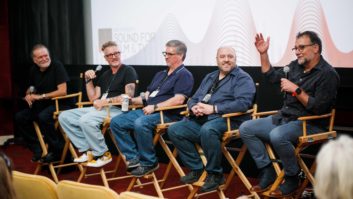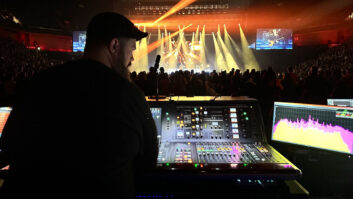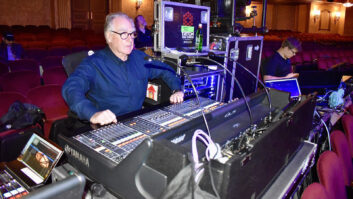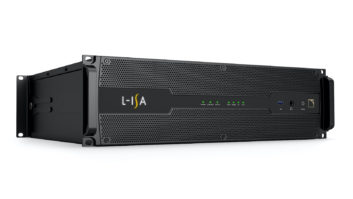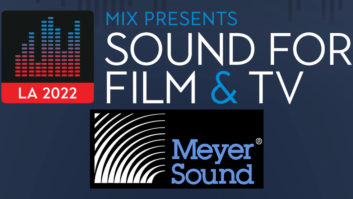Paul Butler, founder member of the Isle of Wight-based The Bees and owner of The Steam Rooms recording studio, has purchased a Prism Sound Orpheus FireWire multi-track audio interface from Funky Junk to help expand his work with other artists. Not that he seems to need too much help, his work with Michael Kiwanuka already attracting enough attention to see Kiwanuka top the BBC’s influential ‘Sound Of 2012’ poll.
“I’m a sort of producer/musician/engineer/writer/performer: it’s the integrated approach to recording and playing music that helps me do what I do,” explains Butler. “The Bees has been my training in many areas of music and the industry, and recently I’ve had opportunities to branch out into the world of producing other artists. I run a studio on the Isle of Wight that uses choice pieces of kit from the last six decades.”
The Orpheus has now joined the kit list at The Steam Rooms, following The Bees borrowing one for a writing session, and will be added to Butler’s mobile recording rig. “The idea of the rig is that we rent inspirational spaces (out of season), utilising the room and surroundings for the perfect creative environment for writing,” he says.
Certainly his work with Kiwanuka, first on a couple of EPs and then his recently released and critically acclaimed debut album, Home Again, has shown the dividends such an approach can take.
“Our mobile rig consists of four additional lunchbox Mic/Line pres, one channel of quality compression, a laptop, a bag of mics, and a pair of small near field speakers,” says Butler. “Along with some quality instruments and reasonable musicians, the Orpheus sat at the heart. The results were much better than expected. It was like an older-era style of recording, only using a handful of outboard bits, and its success was down to strategic mic placement and good use of the large room we rented.
“The amount of channels available meant we kept it raw, but the quality of the recordings has opened up the possibility of not needing a full studio,” he continues. “Headphones were split out the two outputs on the front of the Orpheus to accommodate the four musicians – everything was covered.”
Butler’s sound has been described as ‘colourful, idiosyncratic, and retro-modernist’ (though he himself prefers to describe his approach as organic rather than retro) and plans for the future now include making full-time use of the Orpheus in his set-up, both for The Bees and other artists. “I use it for master recordings, but it’ll be with us for another ‘recording holiday’ soon.”
-ends-
Note To Editors
The name Prism is widely used in different markets and by many different companies worldwide. The Cambridge-based UK manufacturer of audio interfaces, test and measurement equipment and logging systems, to whom this press release refers, seeks to avoid commercial confusion with these other markets and companies by always using its full name, Prism Sound, in its commercial communications. To avoid further action by these companies, Prism Sound respectfully ask that this convention be followed in print and on-line media which refer to their company and products. Thank you.
About Prism Sound
Founded in 1987, Prism Sound manufacture high-quality professional digital audio equipment for the International broadcast, film, music production, manufacturing and telecommunications sectors. The company’s product range includes the Prism ADA-8XR precision 8-channel converter unit, which is regularly used for music and film soundtrack projects by clients such as EMI Abbey Road, BBC, Sony, Lucasfilm and Walt Disney. Prism Sound also manufactures a range of audio test and measurement products, including the de facto standard DSA-1 handheld digital audio generator/analyser and the dScope Series III audio analyser system.
For more information: www.prismsound.com
